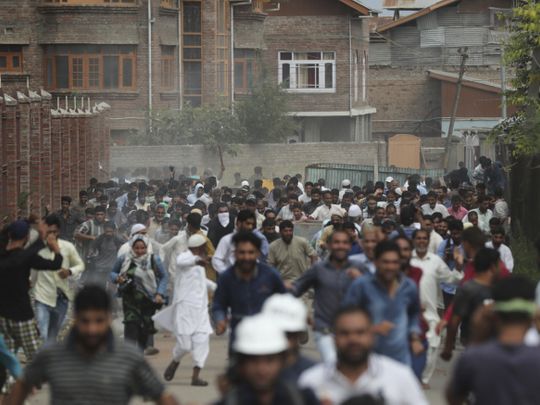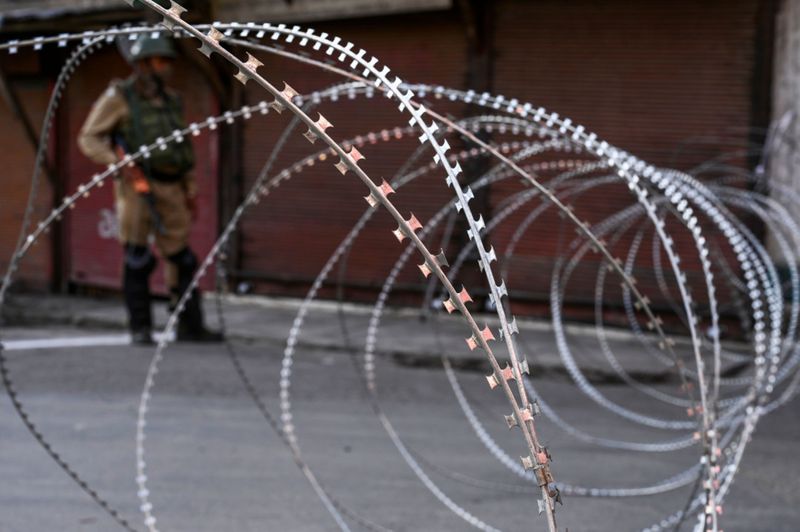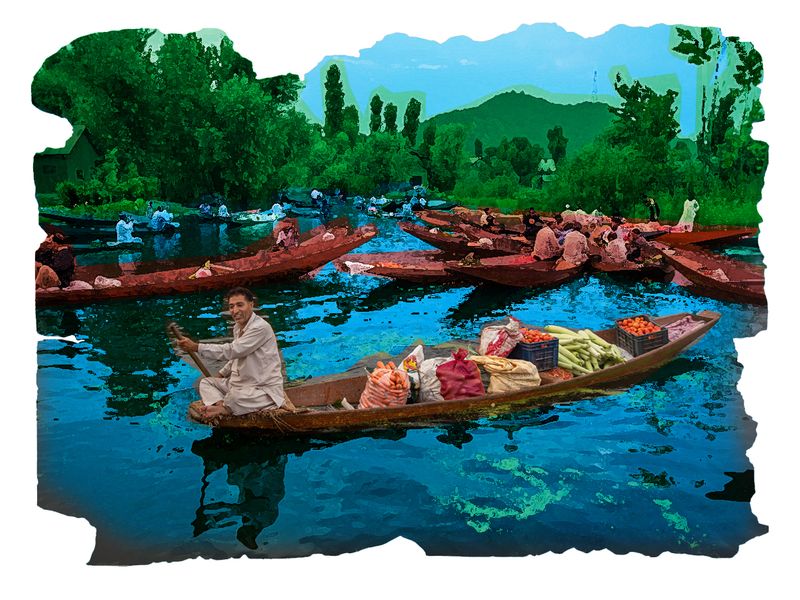
It has been nearly a year since Kashmir’s autonomy was scrapped. Half of it went in lockdowns imposed by the world’s largest democracy. Another half — roughly — by a global lockdown imposed by the coronavirus.
Kashmiris, collectively and individually, seem to have aged a decade during this time. Even the White Giant rabbit, my friend’s pet, seems super lazy these days.
Ironically Kashmir’s history is striated with melancholy dates. 1931, 1939, 1946, 1947, 1975, 1989, 1996, 2000, 2002, 2019, 2020.
Also see
- Photos: Kashmir athletes struggle during COVID-19 lockdown
- Photos: Readers' pick - Best places in Belgium, Hong Kong, Italy, Pakistan, Philippines, Switzerland and Thailand
- Photos: Readers' choice - Best travel destinations in Pakistan, India, Georgia, Azerbaijan and Oman
- Kashmir Solidarity Day in Pakistan: India flags burned, red-stained hands raised
Right from July 31, 1931 — when the movement against the repressive Maharaja began with the killing of 22 Kashmiris outside the Central Jail in Srinagar — up to August 5, 2019 — when the entire Kashmiri leadership was packed off to the same Central Jail (when jails over-flowed, overnight thousands were put on transport planes and flown a thousand miles away to prisons on the mainland) — our dateline is replete with agony — the size of Sardar Patel’s statue in Narmada district.
The promises, the letters, the claims, the guarantees, the assurances, the agendas of agreement, the safeguards, the pledges — all of it — were turning to hot ash and dust. Like a drunk lover, finished with a bad relationship, tosses all love notes and letters into bonfire. I could feel the hearts singe
So, on August 5 last year — this day — when another Gujarati, Amit Shah, India’s home minister (currently recuperating in a Delhi hospital after testing COVID-19 positive) got up in the parliament, petrified Kashmiris, huddled before their TV sets (including myself visiting home on my annual sabbatical) sent up collective prayers.

Outside column after column of soldiers were seen unspooling reels after reels of concertina wire. “What the bloody hell are they on about?” a neighbour, shouted from his rooftop. No one could tell or text or call each other. The phone lines didn’t work. A few friends jumped fences to reach our home.
Breaking a covenant
All communication had been snapped at the stroke of midnight. Everyone watched TV with some trepidation. With a slight quaver in his clever voice, and plenty of ruckus in the parliament, Shah announced the abrogation of Article 370. Apart from the means of communication — the first thing to vanish — they were breaking a covenant.
The solemn pledge, that great agreement between Kashmir and India — the one that Kashmir’s first prime minister, adoringly called the Lion, had entered with India’s independence icon and first prime minister, was broken. Just like that.
As parliamentarians hollered that fateful day, there was some confusion on what was being said. Friends wouldn’t stop cross-talking. I was trying hard to focus, in order to rapidly interpret the legalese. Ideally my smartphone would come in handy but there was no internet.
Overnight Kashmir had been pushed into a dystopian, intimidating information black hole. Now it was your intuition alone — and what was happening right in front of us — that mattered.
Tiny cones of light
In the next few minutes Article 370 was gone. Article 35A was gone. Kashmir’s very own constitution was gone. Our red and white state flag was gone. It was an unending torment. One after the other all the tiny cones of light were being snuffed out.
The promises, the letters, the claims, the guarantees, the assurances, the agendas of agreement, the safeguards, the pledges — all of it — were turning to hot ash and dust. Like a drunk lover, finished with a bad relationship, tosses all love notes and letters into bonfire. I could feel the hearts singe.
In one fell swoop, as if to top the humiliation with a desi tadka, the state of Jammu and Kashmir — a political entity that predated both India and Pakistan — too was dissolved.
We have always had a unique political identity. Kashmir had always maintained an independent and unique character under a series of regional dynasties — from Buddhist Karkotas right up to the Mughals and thereafter.
Even the modern state of J&K, created — on 16 March 1846 — under the Second Treaty of Amritsar between the British and Raja Gulab Singh, came into existence a good 101 years before India attained its independence. Now the state stood annulled. It was over. We were being cancelled out, along with the place.

A whole year has gone by
Fast forward to the first week of August 2020. A complete year of Mondays has gone by. Some of the thousands jailed last year have been let go. Many are still imprisoned.
Livelihoods have been lost. Boatsmen have no one to ferry around. Cabbies have no work. The carpet weavers are stressed. High-speed internet still isn’t allowed. Local media has become a sanitised version of what it used to be.
Dissent, the corner stone of a free society, doesn’t exist in Kashmir. The bureaucracy, all outsiders, are busy doling out Domicile certificates, to non-Kashmiris. Already unemployment rates in the valley are among the highest anywhere in India. The economy has lost billions since last year.
When you talk to well-informed Kashmiris, most of them tell you that they find it hard to wrap their heads around these dizzying developments. Everything looks under-important, taken by the night.
Walking the plank
Who does one blame and not blame? The Lion is long dead. His cubs are weighed down. The other eminence grise, the lady who till about a year and half ago, was the boss of the Unified Command and used to helm the ship, is still in jail.
Midway through the journey, they rounded up the captain and her crew and made them walk the plank. Such are the rules of high seas. The code is more what you’d call ‘guidelines’ than actual rules, as Barbossa would say.
Truth be told an ideological incoherence has set in the valley. Kashmiri unionists have taken the matter to India’s highest court. It has been close to 370 days after Article 370 was cast away into the deep blue sea but little urgency was shown by the Supreme Court. Yet a sliver of hope exists. Justice, after all, is the sum of all moral duty.
A year on, my friend says his rabbit has completely stopped rummaging through the kitchen garden. Perhaps everyone feels the angst, deep in their conscience.
It is just that rabbits can’t feign it. They are also blind to covenants between the dominant and vulnerable, which mostly never hold. The wise bunny knows that the carrot will not hop to him.







